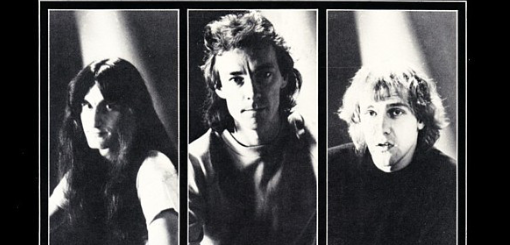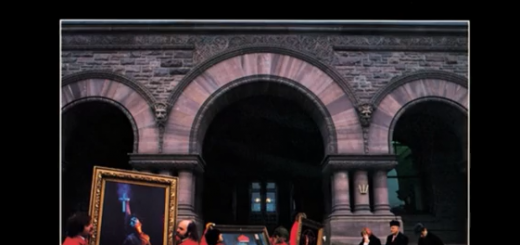Rush’s “Freewill” Lyrics Meaning
“Freewill” is commonly understood as being an espousement of atheism. Such a conclusion would primarily be derived from the nature of the chorus, in which Geddy seems to be mocking those who put their faith in unseen, i.e. spiritual, factors.
Relatedly in the pre-chorus, he flips a well-known Biblical quote to rather point to, in a manner of speaking, how some people are never compelled to place the onus on themselves in terms of improving their lives.
And it should also be noted that on a personal level Lee has referred to himself as being a “Jewish atheist”. Apparently both of his bandmates, Alex Lifeson and Neil Peart were of similar leanings, as in not believing in a Higher Power.
To reiterate, the lyrics do seem to make light of those who do. But labeling this song atheist, even though it was written by atheists, is sorta stretching things a bit or would be a conclusion a listener could more firmly come to with the above foreknowledge in tow.
So instead, let’s say that this track is indeed influenced by atheism. But it came out decades ago, at a time when such-minded artists, even if they wanted to, weren’t compelled to just come out and state such a stance directly.
A Song about Freedom
Geddy Lee went on to make it known that “Freewill” is a song about “free will” and having the freedom to choose.
He further expounded on that by saying it is about a person believing in what he/she has ultimately decided to believe in.
That particular philosophy as we know it today is not found in atheism but rather Thelema. Thelema is a religious movement started by prominent and controversial 20th century occultist Aleister Crowley which is more or less a form of secular humanism.
But that said, this piece doesn’t read like an actual espousement of Thelema or anything like that.
And instead what we are more specifically met with, in a roundabout way, can actually be deemed a song of encouragement. In other words, in essence what the singer is putting forth is that timid and unsatisfied people need to be more aggressive in terms of turning their lives around, instead of waiting for some type of sign or favor from above to materialize.
Or more to the point, it is addressed to people who are not only timid and unsatisfied but also possess belief systems which, under Rush’s estimation, compels them to wait for a miracle, if you will, as opposed to taking the initiative to better their lot. Geddy and co. feel as if those who hold such beliefs don’t fully appreciate their own power that lies within.

Facts about “Freewill”
This track is from “Permanent Waves”, the Rush album that Mercury Records put out on 14 January 1980.
Whereas the album does mark one of the band’s better showings on the Billboard 200, interestingly Rush reached the peak of their popularity in the United States later on, i.e. from the early 1990s and into the early 2010s. But they disbanded shortly thereafter, primarily, it would seem, due to health issues.
In 1981 a live version of “Freewill” was featured on Rush’s album “Exit… Stage Left”. In fact this song, despite never coming out as a single, is obviously a fan favorite. This is because it also made its way onto a number of band’s compilation projects and currently stands as one of the band’s most famous songs.
At the time this track was dropped, Rush’s lineup consisted of the following three individuals who were at the core of the act:
- Geddy Lee
- Alex Lifeson
- Neil Peart
It is that trio who are credited with writing “Freewill” and also producing it, in the latter case as a unit alongside Terry Brown.
This was one of the first songs composed for “Permanent Waves”, and accordingly Rush is on record as having first performed “Freewill” during late 1979.
The music video to this track was directed by the late Martin Kahan (d. 2021).










Genetic blends… Is that the mixing of our DNA with the Annunaki god’s, as is written in the ancient sumerian texts?
Who is John Galt?